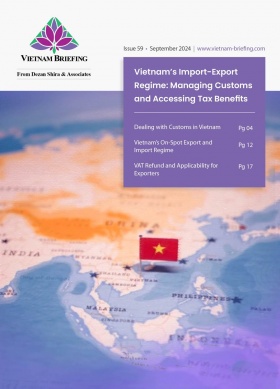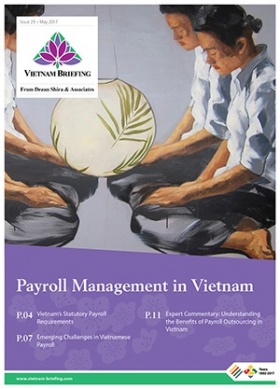Vietnam’s New Trade Union Law: Key Changes and Foreign Workers’ Rights
Vietnam’s New Trade Union Law will come into force on July 1, 2025, after being enacted in November last year. The new law is expected to bring about notable changes to protect the rights of foreign workers in Vietnam, especially by allowing them to join trade unions.
Vietnam’s 2024 Trade Union Law introduces substantial amendments that will significantly influence how employees in Vietnam practice their rights at work, thus elevating businesses’ responsibility in protecting labor rights. It will bring annulment to the current Law on Trade Union after it has been in effect for over a decade.
This article explores key changes in Vietnam’s 2024 Trade Union Law and its impacts on worker rights and business operations in Vietnam.
Overview of Vietnam’s 2024 Trade Union Law
The revised law consists of six chapters and 37 articles and stipulates:
- Functions, tasks, rights, and responsibilities of the Vietnam Trade Union;
- Right of employees to establish, join, and operate trade unions;
- Employees’ participation in Vietnam Trade Union;
- Rights and responsibilities of trade union members;
- Responsibilities of the State, agencies, organizations, units, enterprises, and employers towards trade unions;
- Ensuring the operation of trade unions; and
- Resolving disputes and handling violations of the law on trade unions.
It pertains to all stakeholders of labor rights in Vietnam and incorporates new provisions that align Vietnam’s legislation with global standards and practices.
According to the new law, Vietnam Trade Union is a unified organization consisting of the following levels:
- Central level (Vietnam General Confederation of Labor);
- Provincial, central industry, and equivalent trade unions;
- Direct superior union at the grassroots level; and
- Grassroots trade unions.
Key change: Foreign workers allowed to join trade unions
According to Article 5 of Vietnam’s 2024 Trade Union Law, foreign workers employed in Vietnam under labor contracts lasting 12 months or more are allowed to join trade unions at their workplaces.
As members of these trade unions, foreign workers can protect their rights and voice their opinions. This ensures that both foreign and domestic workers have equal access to representation and advocacy. Allowing foreign workers to join trade unions reflects the open, progressive, and integrative development of Vietnam’s trade union system in alignment with global labor practices. The new provision also encourages foreign workers to participate in trade unions to share their knowledge, skills, and experiences.
Notable amendments in Vietnam’s New Trade Union Law
Regulations on Vietnam Trade Union participation
Article 6 of the 2024 Trade Union Law outlines strict conditions and procedures for participating in the Vietnam Trade Union. It details the responsibilities and legal consequences associated with joining the Vietnam Trade Union and designates the Vietnam General Confederation of Labor to oversee the implementation of membership procedures.
To apply for membership in the Vietnam Trade Union, labor unions at enterprises must submit the following documents:
- A written request to join the Vietnam Trade Union;
- Copies of documents proving the legality of the labor unions within the enterprises;
- A document indicating that the labor unions have decided to join the Vietnam Trade Union. The procedure for approving this decision must comply with the relevant labor laws;
- A list of signatures from members who voluntarily wish to join the Vietnam Trade Union;
- Any documents and agreements that align with applicable laws regarding the rights and obligations of the labor unions and their members within the enterprises.
Maintaining the union fee contribution rate at 2 percent
Article 29 of the 2024 Trade Union Law still stipulates that the union fee paid by agencies, organizations, and enterprises is 2 percent.
According to the Vietnam General Confederation of Labor, this is an essential legal basis that has been implemented stably and effectively to ensure material conditions for the union organization to perform its functions and tasks well according to the provisions of law and to better care for the employees.
Fee exemption, reduction, and postponement for struggling firms
New provisions in Article 30 of the Trade Union Law 2024 allow enterprises facing economic difficulties or situations classified as force majeure to apply for a reduction in trade union fee payments, starting July 1, 2025.
Additionally, if an enterprise encounters challenges due to natural disasters, fires, or epidemics, resulting in a temporary suspension of production and business operations that prevents them from paying trade union fees, they may apply for a temporary suspension of these payments for up to 12 months.
After the suspension period ends, businesses must continue to pay union fees and make additional payments for the duration of the suspension. The deadline for these additional payments is the last day of the month following the month in which the suspension concludes. The amount of the additional payment will be equal to the union fees that would have been owed during the months of suspension.
These new measures aim to support and motivate both employees and enterprises in overcoming difficult times, stabilizing production, and maintaining employment.
Supplementing regulations on trade union supervision
Article 16 of the Trade Union Law 2024 has added regulations regarding trade union supervision activities. According to this article, there are four forms of supervision:
- Reviewing documents and reports from employers, agencies, and organizations being supervised;
- Engaging in dialogue with employers and holding conferences for officials, civil servants, public employees, and workers, in accordance with the laws governing grassroots democracy;
- Conducting activities through the People’s Inspectorate in various agencies, units, and state-owned enterprises; and
- Organizing a supervision delegation.
Before and during the supervision process, enterprises are entitled to:
- Advance notification regarding the content and plan of the supervision;
- Opportunities to discuss and clarify the supervision contents relevant to their responsibilities; and
- The ability to request a review of the supervision results and to make recommendations afterward if necessary.
Prohibited Activities in Trade Union Practice
To ensure legal compliance in trade union rights practices, individuals and organizations must avoid engaging in eight prohibited activities as outlined in Article 10 of Vietnam’s 2024 Trade Union Law.
By adhering to these guidelines, trade unions can ensure compliance with Vietnam’s labor laws and protect the rights of their members. The forbidden activities include:
Obstruction of Individual Trade Union Rights: Trade unions are prohibited from obstructing or creating obstacles that prevent individuals from exercising their trade union rights.
Participation Discrimination: Discrimination against employees and trade union officials in relation to the establishment, joining, or participation in trade union activities is forbidden. Such discrimination includes the following actions:
- Requiring individuals to participate in, refrain from, or withdraw from the Vietnam General Confederation of Labor as a condition for hiring, signing, or renewing a labor contract.
- Dismissing, disciplining, or unilaterally terminating a labor contract, not renewing a labor contract, or transferring employees to different positions based on their trade union activities.
- Discriminating in terms of wages, bonuses, benefits, working hours, or other labor rights and obligations.
- Discriminating based on gender, ethnicity, religion, beliefs, or other factors in the workplace.
- Providing false information that undermines the reputation of trade union officials.
- Offering or providing material or non-material benefits to discourage participation in trade union activities or to pressure officials to act against the interests of the union.
- Dominating, obstructing, or interfering with work that weakens trade union activities.
- Engaging in any other actions specified by law.
Coercion Against Trade Unions: Using economic coercion, threats, or other detrimental measures against the trade union organization is prohibited. This includes interfering with or manipulating the establishment and operation of the trade union or undermining its functions, tasks, rights, and responsibilities.
Failure to Ensure Necessary Conditions: Failing to provide the necessary conditions for trade union activities and support for trade union officials as mandated by law is also prohibited.
Mismanagement of Trade Union Fees: Failure to pay trade union fees on time, underpaying, overpaying, or mismanaging union dues is not allowed. This includes failing to collect fees from all obligated members or mismanaging the collection and usage of these fees.
Accepting Illegal Aid or Support: Accepting aid, sponsorship, or technical support that violates the law is prohibited.
Exploitation of Union Rights: Exploiting union rights to breach the law or infringe upon the interests of the State and the rights and legitimate interests of agencies, organizations, units, enterprises, and individuals is forbidden.
Providing False Information: Providing false information, inciting, distorting, or defaming the activities and organization of trade unions is not allowed.
Conclusion
Vietnam’s 2024 Trade Union Law marks a significant advancement in labor rights, particularly for foreign workers, by allowing them to join trade unions and actively participate in protecting their rights. Overall, this new law promises to enhance labor relations in Vietnam, promoting a more inclusive and equitable work environment that aligns with global standards.
About Us
Vietnam Briefing is published by Asia Briefing, a subsidiary of Dezan Shira & Associates. We produce material for foreign investors throughout Asia, including ASEAN, China, and India. For editorial matters, contact us here and for a complimentary subscription to our products, please click here. For assistance with investments into Vietnam, please contact us at vietnam@dezshira.com or visit us at www.dezshira.com.
Dezan Shira & Associates assists foreign investors throughout Asia from offices across the world, including in Hanoi, Ho Chi Minh City, and Da Nang. We also maintain offices or have alliance partners assisting foreign investors in China, Hong Kong SAR, Dubai (UAE), Indonesia, Singapore, Philippines, Malaysia, Thailand, Bangladesh, Italy, Germany, the United States, and Australia.
- Previous Article An Overview of Vietnam’s Environmental Protection Tax in 2025
- Next Article Hanoi Master Plan 2045-2065: Major Goals and Investment Prospects








